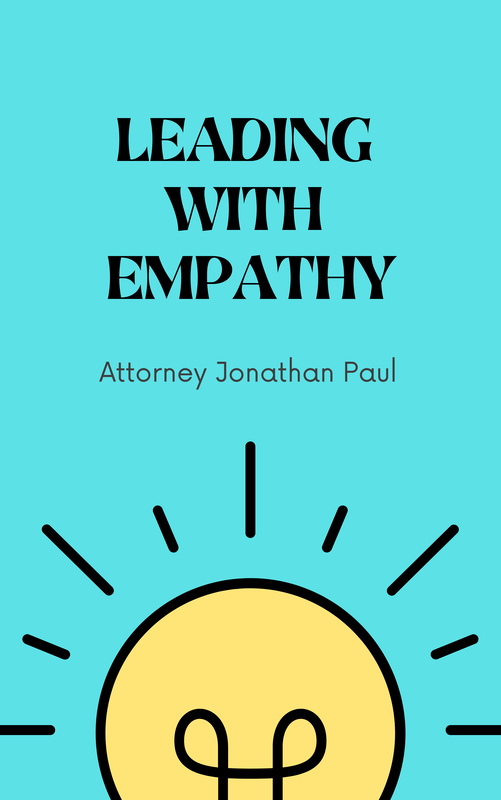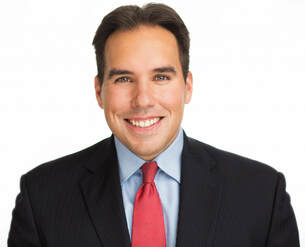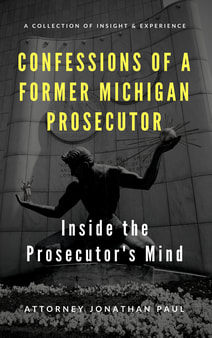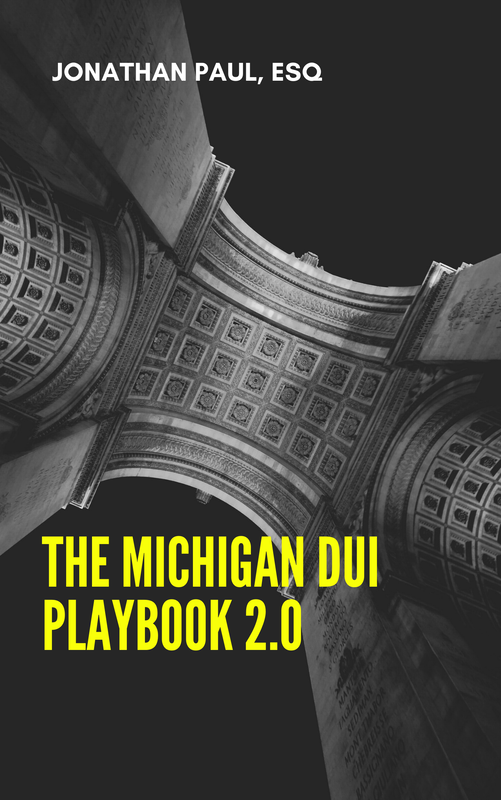|
In Michigan, we have two types of offenses for operating with drugs in your system. First, we have an offense that applies to prescription drugs and marijuana card holders where the prosecutor must show that the substance impaired your ability to drive although the substance is legally in your system.
Second, we have an offense where the mere presence of the drug is against the law; this applies to people without marijuana cards or prescriptions for the controlled substance. A substance like cocaine or heroin is not legal for anyone to have in their system, and it's certainly an uphill battle to defense this type of case, but it's not impossible. When presence is enough to convict, the goal should be to discredit the test altogether. The best way to do this is to challenge the process of of the blood draw, the transport and inventory of the sample, and the testing process. If there's a reason to doubt the test results then there's reason to doubt the prosecutor's case, and the prosecutor can't convict without a valid test. When charged with a DUI in Michigan, there are a number of consequences; one of those consequences is impact on your driver’s license. The court has no say over what happens to your license, because the Michigan Secretary of State is the lone authority on what happens to your ability to drive if convicted of DUI offense.
The Michigan Secretary of State can only sanction a Michigan driver’s license, which means if you have an out of state license, Michigan cannot do anything other than control your ability to drive within the State, but not outside of the State. The Secretary of State can either restrict, suspend or revoke a driver’s license. A restriction allows some driving, typically to school, work, medical appointments, community service, counseling, court and a few other exceptions. A suspension can take away the driver’s ability to drive for a limited period of time, and once the time passes, the driving privileges resume. Revocation is a lifetime loss of driving privileges, but they can be restored by the Secretary of State at a future, but uncertain date. License impact depends upon the type of conviction. Here is a brief breakdown of the most common offenses. * Impaired Driving - 90 days restricted driving * Zero Tolerance - 30 days restricted driving * Intoxicated Driving/Drugged Driving - 30 day suspension, 150 days restricted * Super Drunk - 45 days restricted driving, 320 restricted with ignition interlock installed * Second Offense - 1 year suspension * Third Offense - license revoked, eligible to reapply after 1 year In Michigan, the criminal penal code says it’s a second offense if you have two convictions within seven years; the date of offense is used on the subsequent offense to make this determination. So if you were convicted on September 2nd 2001, you would fall into the second offense category if you are subsequently arrested on or before September 2nd 2008. For a third or more offense, there is no time limit; it’s simply within a lifetime. So you can have a conviction from 1950, 1999 and 2016. There isn’t much strategy in timing when it comes to the criminal code; the best approaches are defeating the case, or resolution with a reduction, sobriety court or sentencing agreement. While timing for the criminal code can’t be impacted, it is the exact opposite when it comes to the Secretary of State. The Secretary of State has the same seven year mark for second offenses, but they use the conviction date for measuring this period. This means that if you were convicted of a DUI on September 2nd of 2001, and subsequently arrested in the summer of 2008, there is a lot of strategy involved. If my client has decided to resolve the case or even go to trial, we make sure the “end” of the case takes place after September 2nd of that year, which would put us outside of the seven year window. The client if convicted would be treated as a first offender outside of the seven year window. This strategy could mean the difference between losing his/her ability to drive for a full year vs being restricted for 90 days. This same strategy is even more crucial when it comes to third offenses. Unlike the criminal penal code, the Secretary of State does use a ten year window. Many of my clients have two very old DUI’s from 10 to 20 years ago. While they will still be charged as a third offender, they can escape the license sanctions for a third offender with the right timing. There’s a chance a third offender could be treated as a second offender, or even a first offender with the right timing strategy. Michigan Drunk Driving Defense
Operating Presence of Drugs In Michigan, the law states the following: A person, whether licensed or not, shall not operate a vehicle upon a highway or other place open to the general public or generally accessible to motor vehicles, including an area designated for the parking of vehicles, within this state if the person has in his or her body an amount of a controlled substance listed in schedule 1 under section 7212 of the public health code, 1978 PA 368, MCL 333.7212, or a rule promulgated under that section, or of a controlled substance described in section 7214(a)(iv) of the public health code, 1978 PA 368, MCL 333.7214. Because the usual breath test with the DataMaster only detects alcohol, the police will use a blood or urine test to test for the presence of a controlled substance in your body. The most popular drugs in someone's system for this offense are methamphetamines, marijuana, and cocaine. Michigan courts have ruled that marijuana metabolites (11-carboxy-THC) in the body is not a schedule 1 controlled substance under MCL 333.7212, thereby precluding a prosecution under MCL 257.625(8) for operating a motor vehicle with any amount of 11-carboxy-THC in the body. It should be noted that in a recent 2013 case, the court of appeals reinstated a charge under MCL 257.625(1)(a) that defendant operated a vehicle under the influence of a controlled substance, which in this case was Ambien (a sedative used to treat insomnia), even though the drug is classified as a controlled substance by administrative rule and not by statute. It should also be noted that a recent Michigan law stated that the Michigan Medical Marihuana Act supersedes MCL 257.625(8) and allows a registered patient to drive with indications of marijuana in his or her system so long as the patient is not otherwise under the influence of marijuana. Effective March 31, 2013, 2012 PA 543 amended §625 by adding the offense of operating under the influence of an “other intoxicating substance.” MCL 257.625(1)(a). Intoxicating substance is defined atMCL 257.625(25)(a). Here are the possible Michigan OWI Penalties for a first offender: - a $100 to $500 fine and one or more of the following: - Up to 93 days in jail. - Up to 360 hours of community service. - Driver's license suspension for 30 days, followed by license restrictions for 150 days. - Possible vehicle immobilization - Possible ignition interlock - Six points added to driving record - Driver Responsibility Fee ($1,000 for 2 consecutive years) Here are the possible Michigan OWI 2nd Offense Penalties - $200 to $1000 fine, and one or more of the following: - 5 days to 1 year in jail. - 30 to 90 days of community service - Driver's license revocation and denial for a minimum of 1 year (minimum of 5 years if there was a prior revocation within 7 years). - License plate confiscation. - Vehicle immobilization for 90 to 180 days, unless the vehicle is forfeited. - Possible vehicle forfeiture. - 6 points added to the offender's driving record. - Driver Responsibility Fee of $1,000 for 2 consecutive years. |
Click to Email Me Categories
All
|
Ann Arbor Office LocationPlymouth Office Location |
Representing DUI Clients in MichiganRepresenting clients charged with a DUI in Ann Arbor, Canton, Brighton, Howell, Saline, Adrian, Taylor, Plymouth, Northville, Westland, Ypsilanti, Pittsfield Towsnhip, Warren, Sterling Heights, Farmington, Pontiac, Romulus, Lansing, Novi, South Lyon, Southfield, Birmingham, Bloomfield Hills, Royal Oak, Troy, Rochester, Jackson, East Lansing, Garden City, Livonia, Dearborn, Detroit, St Clair Shores, Hazel Park, Ferndale, Madison Heights, Waterford, Milford, Shelby Township Clarkston, Oak Park, Berkley, Fraser, Sterling Heights, Clinton Township and others throughout Washtenaw, Wayne, Monroe, Jackson, Genesee, Macomb, Ingham, Lenawee, Livingston and Oakland County.
|







